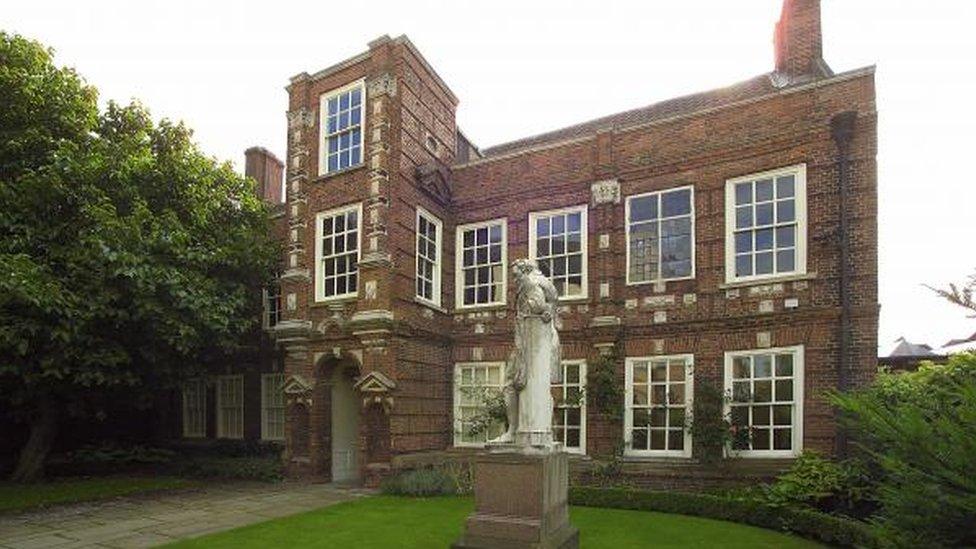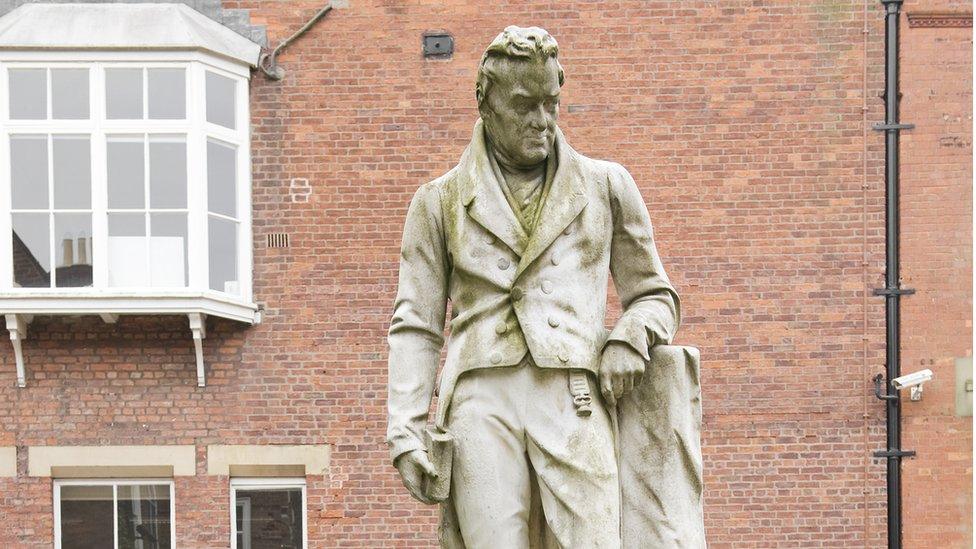Hull's Wilberforce museum reopens after three years
- Published

The museum was the birthplace of leading anti-slavery campaigner William Wilberforce
A museum in Hull has reopened to the public for the first time since it was forced to close due to the Covid pandemic in 2020.
The Grade I listed Wilbeforce House Museum has undergone major conservation work during its closure.
The building was the birthplace of William Wilberforce, a leading anti-slavery campaigner.
New features include a gallery examining the legacy of transatlantic slavery.
It has been funded by Arts Council England and was developed in consultation with the museum's advisory board.
Hull City Council leader Mike Ross said it had been a "long closure".
"Given the global importance of this building it was critical to ensure repairs and investigations were done to the highest standard," he said.

The museum explores Hull and Wilberforce's links with the anti-slavery movement
Work carried out included building maintenance, an overhaul of the heating system and work to the ornate 18th Century plaster ceiling above the main staircase.
Visitors will also be able to see more of the architecture of the building, which was previously obscured by display structures.
"The museum's exciting new galleries, refreshed displays and the structural heritage of the building have been cared for in the best possible way, and we know visitors will see it has been worth the wait," said Robin Diaper, Curator of Maritime and Social History at Hull Culture and Leisure.
"We hope that people will see these as fitting spaces to reflect on the past and issues affecting today."
Wilberforce House, built around 1660, is one of the oldest buildings in Hull and was acquired by William Wilberforce's grandfather in 1732 and was extended by the family.
It opened as a museum in 1906 and offers free admission.

Follow BBC East Yorkshire and Lincolnshire on Facebook, external, Twitter, external, and Instagram, external. Send your story ideas to yorkslincs.news@bbc.co.uk, external.